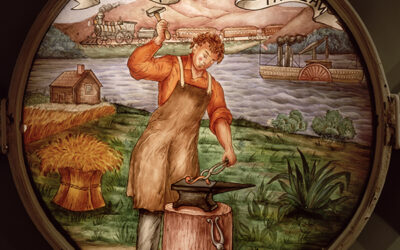The first issue of The Conservative, “A Weekly Journal Devoted to the Discussion of Political, Economic and Sociological Questions,” was issued from the new office of the Morton Printing Company in Nebraska City on July 14, 1898. J. Sterling Morton, the editor, had been planning for some time to publish a weekly paper to reflect his views and provide an occupation in his old age. Morton’s four sons, particularly Joy, furnished much of the capital with which the paper was started.
It was not a news publication, but a journal of discussion, conservative in format as well as in content. The contributors included Carl Schurz, Dr. George L. Miller, Robert W. Furnas, and many others. The business side of the paper was handled by John Nordhouse, who had been Morton’s private secretary in Washington during his tenure as secretary of agriculture under President Grover Cleveland.
Morton was fond of writing of the humble origin of wealthy and famous men. He praised the spirit of the individual rather than that of the group and emphasized the importance of thrift, industry, and honesty. However, a negative theme surfaced in The Conservative, a dislike for William Jennings Bryan and his political ideas. The columns of The Conservative bristled with indignation against Bryan, and Morton often used ridicule to attack his younger rival within the Democratic Party.
The Conservative also served as the vehicle for Morton’s views on the formation of a third political party. In 1896 when conservatives had bolted the Democratic Party on the national political scene, Morton advocated the formation of a separate Conservative Party. He wrote to prominent men all over the country urging them to back such a movement. However, the idea was not well received.
Morton retained his interest in The Conservative until his death in 1902. It had provided occupation for his active mind and vigorous pen during the years following his retirement from official life. He gave it much time and energy, and it is unlikely that he could have been satisfied without it. The paper ceased with the issue of May 29, 1902, which consisted of tributes to the recently deceased Morton.



